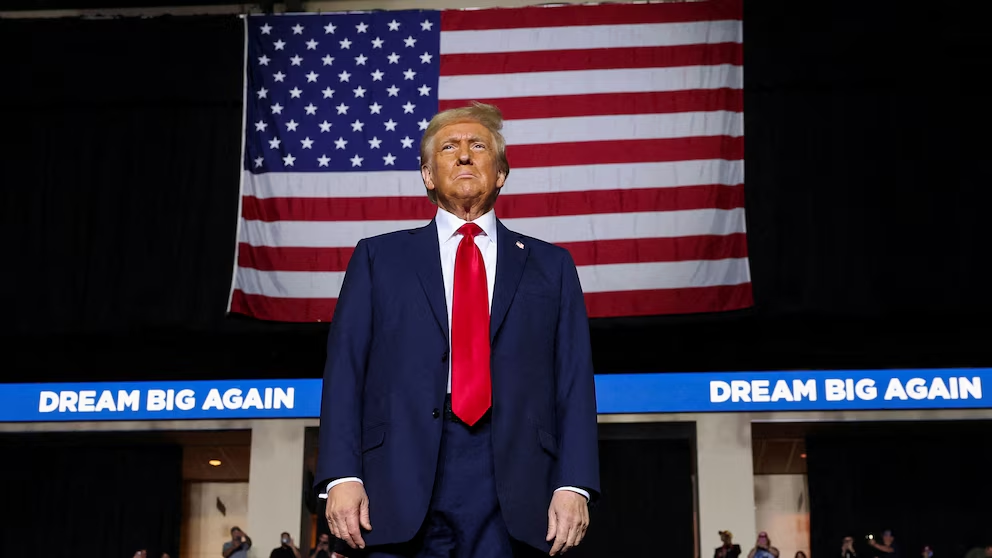Former U.S. President Donald Trump has vowed to put in place wide-ranging tariffs on imports from Mexico, Canada, and China if he wins again in 2024. In unveiling the plan at a campaign rally in Iowa, Mr. Trump is returning to his “America First” economic policies that were the hallmark of his first term in office.
Proposed Tariff Plan
Trump said he would impose a blanket 10% tariff on all goods entering the United States from these major trading partners. ‘He argued that this would protect American manufacturing jobs, reduce reliance on foreign imports, and address trade imbalances.’
“Our economy has been raped by globalist policies,” Trump declared to a cheering crowd. “We are going to bring jobs and wealth back to America, starting with a level playing field on trade.”
This is essentially his policy during his 2017-2021 presidency when he levied tariffs against foreign governments to force them to renegotiate trade agreements. He did this, for example, in replacing NAFTA with the USMCA.
Apprehensions of Trading Partners
It has already elicited concern from the other trade partners of America, like Canada and Mexico, that are closely allied and are also USMCA members. Mexican President Andrés Manuel López Obrador was cautious to state that dialogue must continue in order to keep good relations between trading nations.
Canadian officials voiced concern that such tariffs would breach existing trade agreements and damage industries on both sides of the border. China, which has often been at the receiving end of Trump’s trade policies, is likely to retaliate with its own countermeasures, reigniting a trade war that had serious global economic implications.
Domestic and Global Reactions
It’s a bold move to save American interests, according to Trump’s supporters. In some industries, they say Trump’s trade policies revived them. They also said that those policies made foreign competitors to be accountable. Critics caution, however, that sweeping tariffs could drive up prices for U.S. consumers and companies and strain international relations.
“Tariffs are effectively taxes on American families and companies,” said Daniel Griswold, a trade policy expert. “Raising import costs risks slowing economic growth and undermining global supply chains.”
‘Farmers and manufacturers, who were hit hard by retaliatory tariffs during Trump’s first term, responded with mixed emotions. While some praised the effort to protect domestic industries, others feared renewed economic uncertainty.’
MORE:Israel’s Reckless War Games: Is Lebanon Next on the Chopping Block?
Risks of Renewed Trade Wars
Trump’s first term was marked by an escalating trade war with China, with tariffs on hundreds of billions of dollars in goods. While those measures were credited with forcing Beijing to sign the Phase One Trade Deal, they also caused disruptions in markets, particularly for American agriculture.
Experts say that the proposed tariffs will bring about similar conflicts, making the global trade uncertain and complicating the supply chain recovery after the COVID-19 pandemic.
Election Debate Heats Up
Trump’s tariff proposal heralds a return to hardline economic policies that may be popular with his voter base but will be met with skepticism by economists and business leaders. ‘As the 2024 election approaches, trade policy is set to become a central issue, with implications for the U.S. economy and its position on the global stage.’ While supporters rejoice in Trump’s commitment to economic nationalism, critics say such measures will not favor the American worker but cause greater problems for the nation’s economy.’















